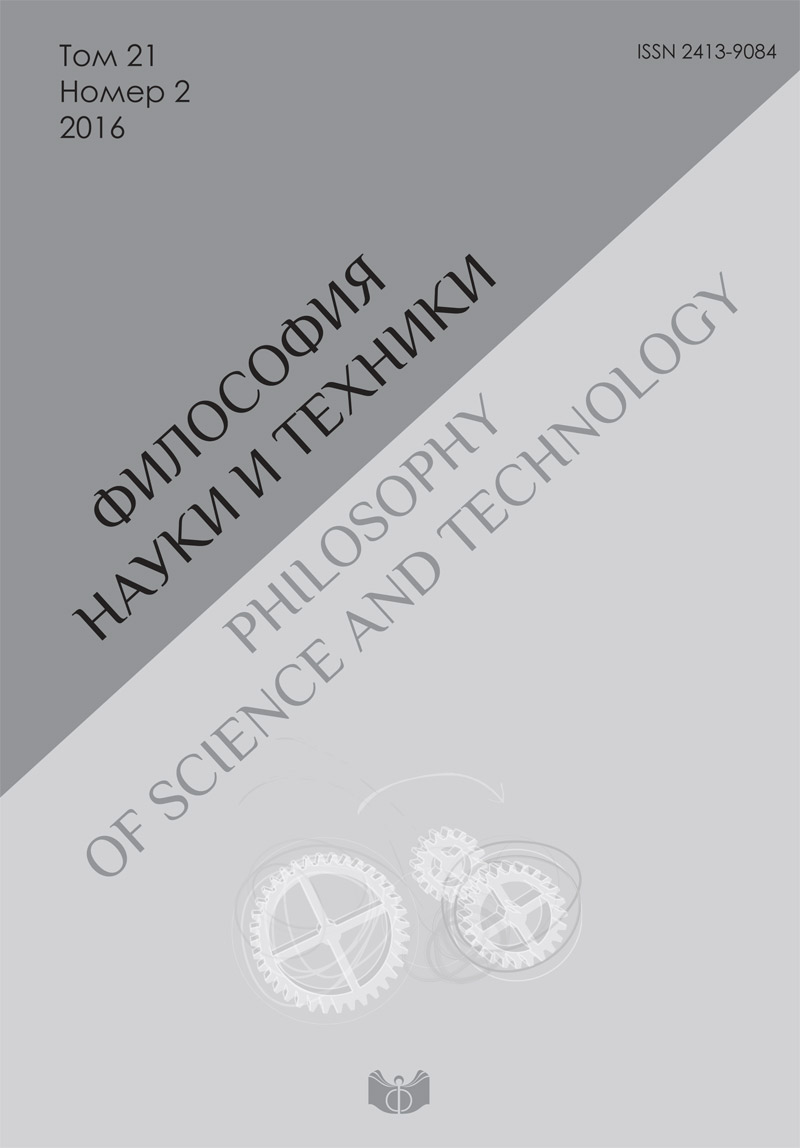Conventionalism and instrumentalism in the light of the doctrine of the research programs of Imre Lakatos
DOI:
https://doi.org/10.21146/2413-9084-2016-21-2-97-110Keywords:
conventionalism, instrumentalism, research program, induction, epicycle, deferens, empiricism, demarcationAbstract
The concept of the research program which Imre Lakatos builds in opposition to a conventionalism from which this program, nevertheless, borrows highlights, is researched in this article. The concept of a kernel and the periphery of the theory are among these moments, in particular. From the point of view of Lakatos, any research program is a set of the theories which are consistently arising and accepted by us. The theories are united by common goals, tasks, means for their achievement and the same object of research. The theory of a conventionalism at the heart of which, from the point of view of Lakatos, lies the idea of reliability under the agreement is researched. According to this idea if the theory is doubtful, it is always possible to agree and declare it conditionally reliable for the purpose of protection of basic provisions, so-called, kernels. The relations between a conventionalism and an instrumentalism as by extreme degree of a conventionalism are considered. According to the theory of an instrumentalism, reliability, in the majority of the cases, doesn't exist and if it exists somewhere, only at the level of atomic judgments. The instrumentalism says to us that theories and systems aren't obliged to be reliable. Theories have to provide results in the form of exact forecasts which will be coordinated with our empirical supervision. From the point of view of Lakatos, when conventionalism is a justified, philosophical position, instrumentalism on the other hand by its nature is only degeneration of conventionalism. According to Lakatos, the reason for instrumentalism is in the usual philosophical untidiness caused by lack of elementary logical education. Any research program, from the point of view of Lakatos, includes three of the basic elements: kernel, positive heuristic and negative heuristic. As well as conventionalism, the negative heuristic of the research program forbids to push together with the empirical facts and, thus, forge those provisions of the program which constitute the firm kernel. We always have to aspire to keeping the basic positions of this program in inviolability. The basic positions of the research program, certainly, can be changed, but it means only one result – transition to other paradigm. Which means – transition to other research program. We can change considerably its periphery for the purpose of protection of a kernel. We can change considerably protective belt of a kernel, but not a kernel. Unlike negative heuristic, the positive heuristic is directed to maintenance of a protective belt and warns the scientist against acts and actions, undesirable to the program.











